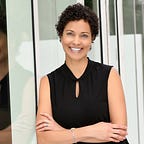Millennial women are more likely to identify as mixed race
ANALYSIS | Why men and women see themselves differently may have more to do with societal perceptions
 The multiracial population in the U.S. is increasing each year, but here’s a riddle: Why are young mixed-race women more likely to identify as multiracial than men?
The multiracial population in the U.S. is increasing each year, but here’s a riddle: Why are young mixed-race women more likely to identify as multiracial than men?
According to a 2016 study of 37,000 first year college students by Stanford University political scientist Lauren Davenport, 74 percent of biracial black/white women said they were multiracial, while only 64 percent of men from the same background labeled themselves that way. The numbers broke down along similar lines for mixed-heritage Latino and Asian men and women.
Who raises you can play a role on how you identify racially, as well as your neighborhood, family income, and educational level. But why men and women see themselves differently may have more to do with societal perceptions of what’s beautiful, or dangerous.
Smith agreed that a gender difference may exist. While reporting on a master’s project earlier this year at Hofstra University (where I teach journalism) about growing up biracial on Long Island, she also found that young women were more likely to say they were multiracial than men.
At the Los Angeles Theatre Center, where the fourth annual Mixed Remixed festival took place last month, I talked to Chris Blockton, 20, an event volunteer. Brockton told me that he “goes back and forth” when describing himself, sometimes saying that his multiracial heritage is a mix of black, Native American, Mediterranean and Eastern European and other times just saying black “for simplicity.”
When I asked why he thought women were more likely to identify as multiracial than men he said the answer, in his opinion, had everything to do with sexuality and desire.
“I think people try to make women seem more exotic,” said Brockton. “And the guy thinks, ‘Oh, she’s special because she’s also Hispanic, or Japanese. They start to fetishize not just the woman, but all her parts.” On the other hand, “nobody cares what the guy is made up of,” he added. “Men don’t get fetishized in that way.”
Others I spoke to pointed to societal perceptions of black masculinity as dangerous and the stereotypical notion that a brown or black man is someone to be feared.
“If you’re a man and you’re any shade of black you will be perceived as such,” said Amanda Mozea, 21, a social studies major at Harvard University, who I spoke to by phone recently. “It almost feels like a lot of men, black and white, have no choice in the matter.”
In the fall of 2015, Mozea organized “OTHER: A Multiracial Student Photo Gallery,” an exhibit featuring fifty subjects who posed “naked from the shoulders up…without the distraction of clothes or jewelry.” Alongside the images were questions for viewers to ponder: “How do others define your race?” “How do you define yourself?” Interestingly, most of those who chose to participate, said Mozea, were women.
“Society is intimidated by black men and men of color,” agreed Wendi Levy, 48, co-founder of Mixed Chicks hair products and one of the Mixed Remixed Festival sponsors. “The world’s eyes are less open to seeing men as just human beings in all their glory. They put multiracial men in a box and have made it more difficult for them to get out.”
Amanda Mozea, on the other hand, like three in ten multiracial adults according to the Pew Research Center, said that how she defines herself has shifted over time and continues to do so.
“In third grade I remember choosing black and I don’t remember being conflicted at all about it,” she said. “As I’ve grown older I’ve felt more and more frustrated. The more I think about it and the more I try to answer that question, the less clear my answer is. I’ve become more conflicted.”
Maybe the difference is simply that women give themselves permission to explore these constantly changing dynamics, in ways that men don’t.
“I guess you want honesty,” said Kevin Whittington, 48, an actor, musician and screenwriter when I asked how he identified himself. “To be flat out honest, I would [say whichever] for the benefit. Whether it’s a job or to fit in.” Whittington, who attended the Mixed Remixed Festival also said he was more likely to call himself multiracial if it meant being regarded as “less of a stereotypical threat.”
“Whatever it takes to survive,” he added.
